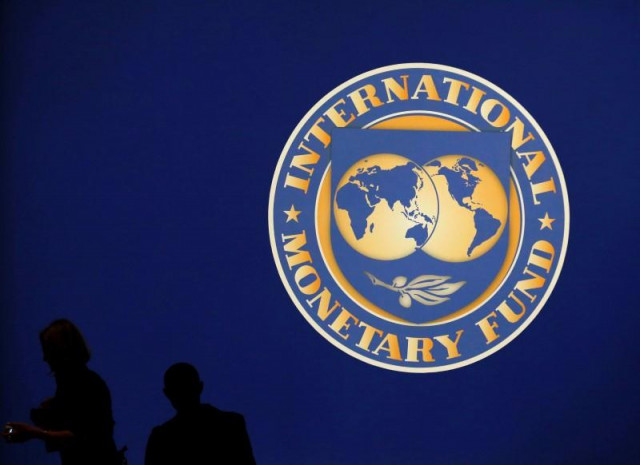Staff-level accord with IMF unlocks $450m tranche
Move comes after both sides resolve all issues to keep $6b package on track

'Agreement is subject to approval by IMF management, consideration by Executive Board, which is likely in early April'. PHOTO: REUTERS
“The IMF staff and the Pakistani authorities have reached a staff-level agreement on policies and reforms needed to complete the second review of the authorities reform programme supported under the EFF,” stated Ernesto Ramirez Rigo, IMF Mission Chief for Pakistan, in a handout issued from Washington.
In July last year, the IMF board had approved the 39-month Extended Fund Facility (EFF) programme.
The IMF’s statement would bring an end to uncertainty caused by the delay in reaching the agreement.
Pakistan’s economy and FATF: reality and myth
“This is a welcome endorsement of our economic reform programme,” said State Bank of Pakistan Governor Dr Reza Baqir while talking to The Express Tribune.
As also observed by the IMF, the SBP's foreign exchange reserves are well above targets and the exchange rate market is orderly, he added.
The central bank’s gross official reserves have increased to $12.6 billion.
The governor said that inflation was expected to decline in coming months, and the economy was gradually recovering. “Our reforms are building a bright and sustainable economic future for Pakistan.”
The IMF staff had returned to Washington on February 14 without reaching the staff-level deal due to a disagreement over a mini-budget and increase in electricity prices.
The Federal Board of Revenue on Thursday remained tight-lipped whether the IMF had agreed to further cut its tax collection target or a mini-budget was still required.
During the talks, the FBR’s position was that at the current pace of revenue collection, it may collect Rs4.613 trillion without additional measures.
There were no official words from the IMF and the FBR whether the IMF withdrew from its demand for additional tax measures.
“All details regarding the reviews of the IMF-supported programmes are made public only after reviews are approved by the fund executive board and the accompanying staff report is published,” Teresa Dabán Sanchez, Islamabad based Resident Representative of the IMF, told The Express Tribune. The FBR also refused to comment on the matter.
The IMF had given Rs5.503 trillion tax collection target to the FBR for the current fiscal year. The tax authorities collected Rs2.406 trillion during the first seven months of the fiscal year - a shortfall of Rs385 billion.
Pakistani authorities were asking the IMF to trade off the shortfall in tax revenues with non-tax revenues mainly increasing because of higher profits of the central bank. Following discussions between IMF staff and the Pakistani authorities in
Islamabad from February 3-13, which continued from the IMF headquarters in recent days, stated the IMF.
“The agreement is subject to approval by the IMF management and consideration by the executive board, which is expected in early April.”
Completion of the review will enable disbursement of SDR 328 million or around $450 million, said the IMF.
If the board approves the second review, the total disbursements by the IMF would reach to $1.9 billion by April.
It was the second IMF statement on the issue of second review (October-December) of the programme. Earlier, the fund had only announced the conclusion of the review mission but did not announce a staff-level agreement.
In the last statement issued about two weeks ago, the IMF had said that the visiting mission and the Pakistani authorities made significant progress in the discussions on policies and reforms.
IMF sends mission to Pakistan for performance review
In the coming days, progress would continue to pave the way for the IMF executive board’s consideration of the review.
The IMF had said that steadfast progress on programme implementation would pave the way for the review.
The other outstanding issue was the increase in electricity prices. But Prime Minister Imran Khan had made it clear that his government would not further increase the electricity prices.
In its previous statement, the IMF stated that inflation should start to see a declining trend as the pass-through of exchange rate depreciation has been absorbed and supply-side constraints appear to be temporary.
The fiscal performance in the first half of the fiscal year remained strong with the government registering a primary surplus of 0.7% of GDP on the back of strong domestic tax revenue growth. Development and social spending have been accelerated, it had added.


















COMMENTS
Comments are moderated and generally will be posted if they are on-topic and not abusive.
For more information, please see our Comments FAQ